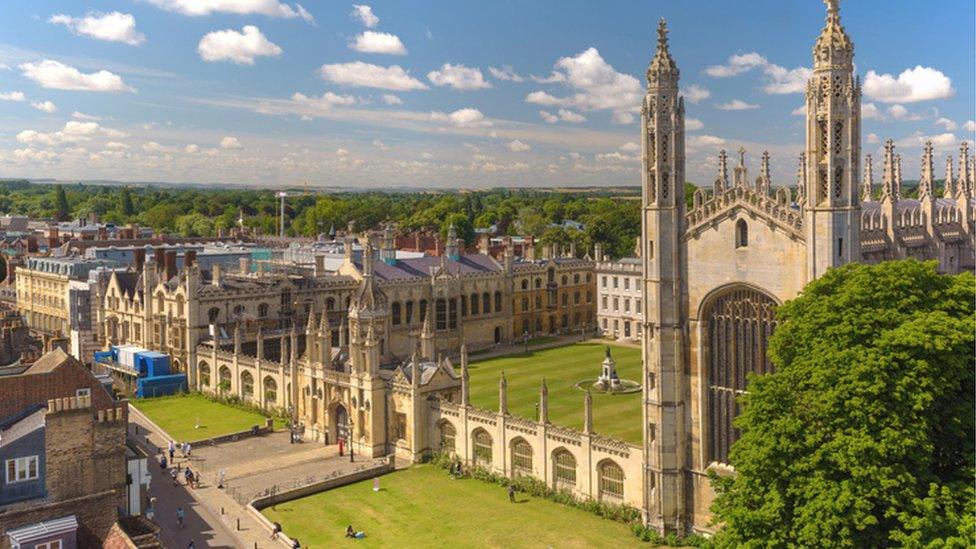What can Cambridge learn from Gothenburg's congestion charge?
- Published
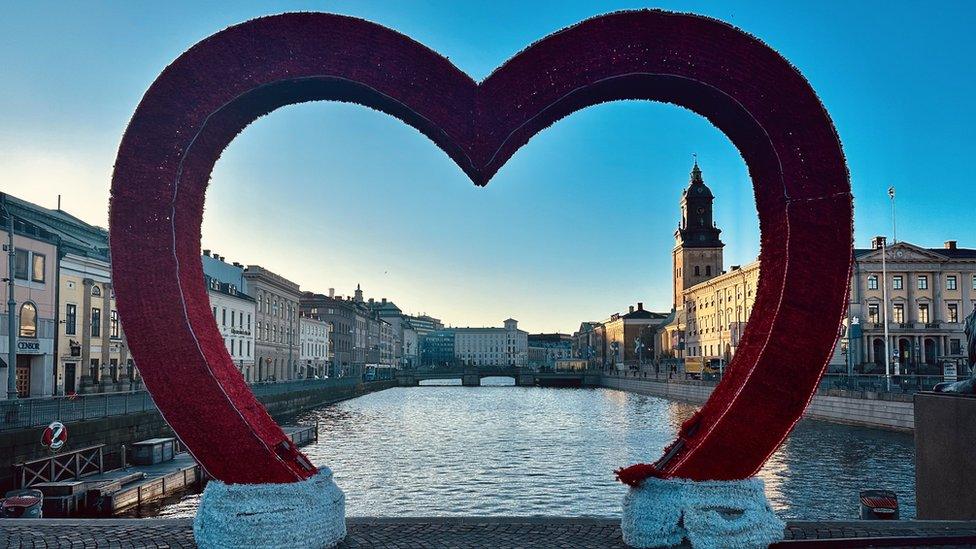
Gothenburg began charging motorists for driving into and past the city in 2013
Gothenburg, Sweden's second city, is ringed by 38 sets of cameras, silently raising around £70m a year in taxes. A decade on since Gothenburg introduced its congestion charge, what has it meant both for the city's inhabitants and the British cities, such as Cambridge, considering similar plans?
Bernadette Johansson feels like she is being punished.
Her husband Lars-Gunnar wants more carrot and less stick.
They are discussing Gothenburg's congestion charge - a system which which still attracts criticism 10 years on.
"I think it's very good that cities are thinking about the environment, but we can't be punished all the time," Bernadette says, sitting in her kitchen overlooking a lake in the countryside about 30 minutes from the city centre.
Sometimes she has "no alternative" but to drive into the city because public transport is neither cheaper nor more convenient, Bernadette says.
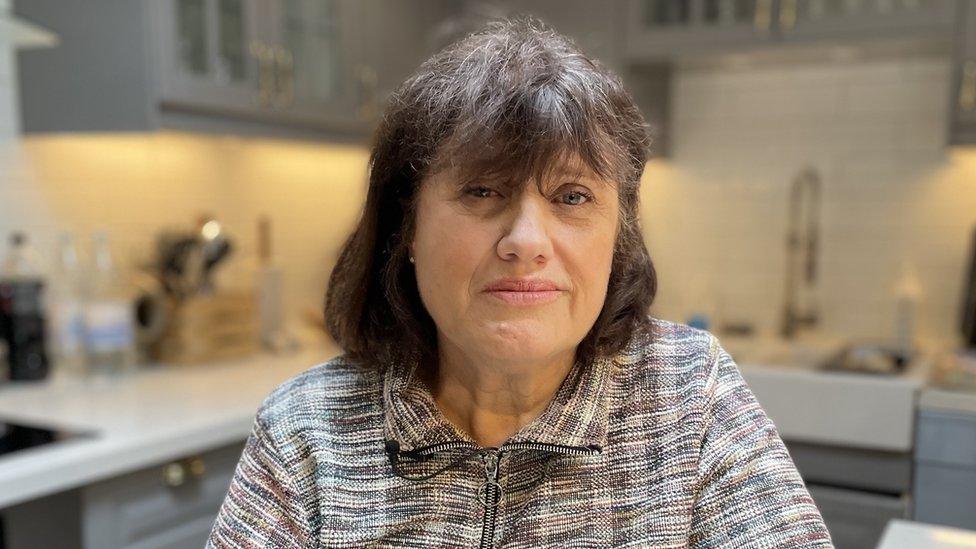
Bernadette's message for Cambridge is to get the infrastructure right to give drivers a workable alternative
Bernadette, 69, who moved to Sweden from her Essex home 35 years ago, added: "I have to go for hospital visits, dental visits, all those kind of things.
"I can't spend four or five hours [on buses] getting to a dental or hospital appointment.
"I think it's unfair," she says. "I think people are being punished. They're not making it easy for people [who drive their own, rather than company, cars] to get into town."
Lars-Gunnar served as a Gothenburg police officer for 44 years.
He says he supports environmental issues "but to me it's a way for the government to get some money".
"I feel for shop owners that are inside [the charging zone] and are struggling a bit because people choose to go to the places where they can park for free and there are no charges."

How do Cambridge and Gothenburg compare?
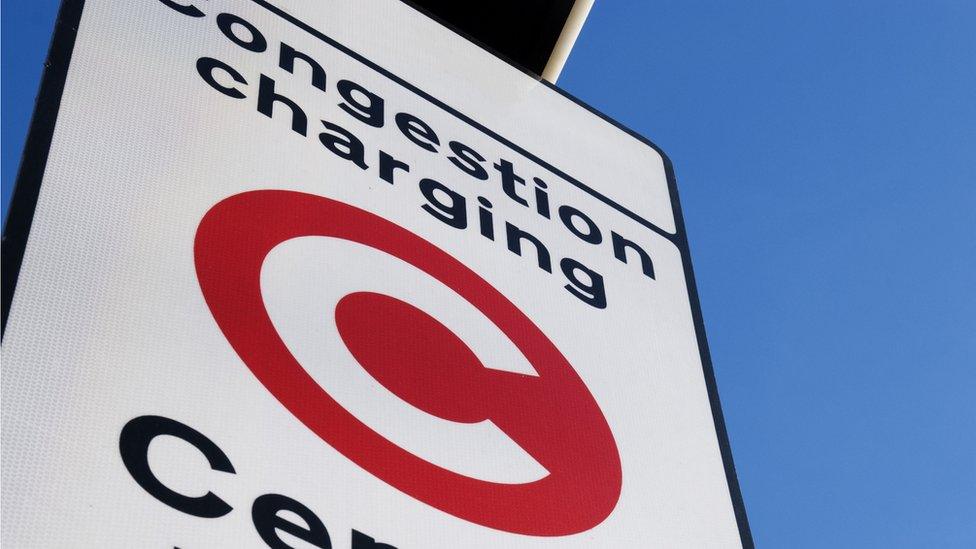
Population: Cambridge is home to 146,000 people compared with Gothenburg's 588,000
Congestion charge: Cambridge is considering a daily flat fee of £5 for cars, £10 for vans and £50 for HGVs between 07:00 and 19:00 on weekdays. Prices in Gothenburg start from about 70p off peak to £1.75 at peak times, between 06:00 and 18:29 on weekdays. There is a maximum £4.70 daily charge
Where will the money go? The Greater Cambridge Partnership hopes to raise £50m a year to improve bus network, and walking and cycling facilities. The Gothenburg system brings in £70m a year which goes on infrastructure projects
Impact: Cambridge hopes to cut traffic by 50%. Gothenburg says traffic has been reduced by between 10% and 15%

If this all sounds familiar, it could be because similar fears have been raised about proposals for Cambridge's Sustainable Travel Zone or congestion charge, which could see similar cameras on the city's streets with the aim of raising £50m a year for bus, cycling and walking improvements.
What would the Johanssons write on a postcard to Cambridge?
"To get the infrastructure correct - think about the private person, think about the pensioners and make it attractive and viable for people to go into town," says Bernadette.
For her husband the congestion charge "is definitely a stick" and he "would like to see a carrot instead".
Cambridge, he says, should "create something that's a big carrot for people to use public transport and avoid paying congestion charges".
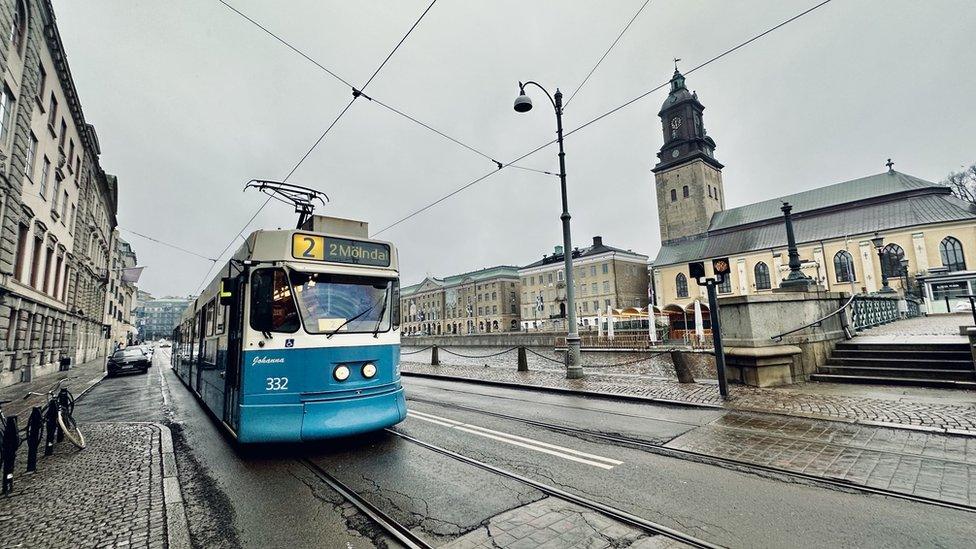
Public transport use went up 8% the year after the charge began and has been rising ever since
Another lesson from Gothenburg for Cambridge is how persistently unpopular the charge there has been.
Even in Greta Thunberg's home country and in a city with a developed public transport network, including trams that glide through suburbs and into the centre, the majority has never supported the congestion charge here.
A referendum in 2014 - held the year after it was introduced - saw 57% oppose it.
In a twist almost worthy of Scandinavian drama, officials said the referendum was only advisory and kept the charge in place.
A public opinion tracker from Gothenburg University's SOM Institutet has consistently shown it has a negative approval rating.

Theo Papaioannou co-founded and led a political party that campaigned against the congestion charge
Ten years ago, Theo Papaioannou, now 47, was instrumental in pressuring the authorities to hold the referendum.
He co-founded and led the Vägvalet political party, established to fight the charge.
"It has become like an unlimited resource of income for the municipality without any consequences if something goes wrong," he says, standing within sight of the Town Hall, where he held a seat on the city council for eight years.
"Everything we said 10 years ago, 15 years ago is happening right now."
He describes the charge as an "unfair expense" that drivers "are really angry about".
"I think they see it as an extra expense that they don't really need to be paying to be frank," he says. "It is like a penalty for going back and forward to your job or taking your kids to school."
His main concern, he says, is about the "democratic process - that they didn't do the democratic process much better and informed the citizens" about the charge.
Addressing those in Cambridge who want to stop the congestion charge plans, he says: "I would write to tell them that… if you want to get to the politician's ear, you need to start really quickly now and start building opinion about it.
"It's really difficult when you're from the outside [trying to get] to the inside, but they need to try hard to get the attention of the politicians.
"You need to protest really hard when you're outside the political system."
But not everyone you meet in the city is anti-congestion charge.
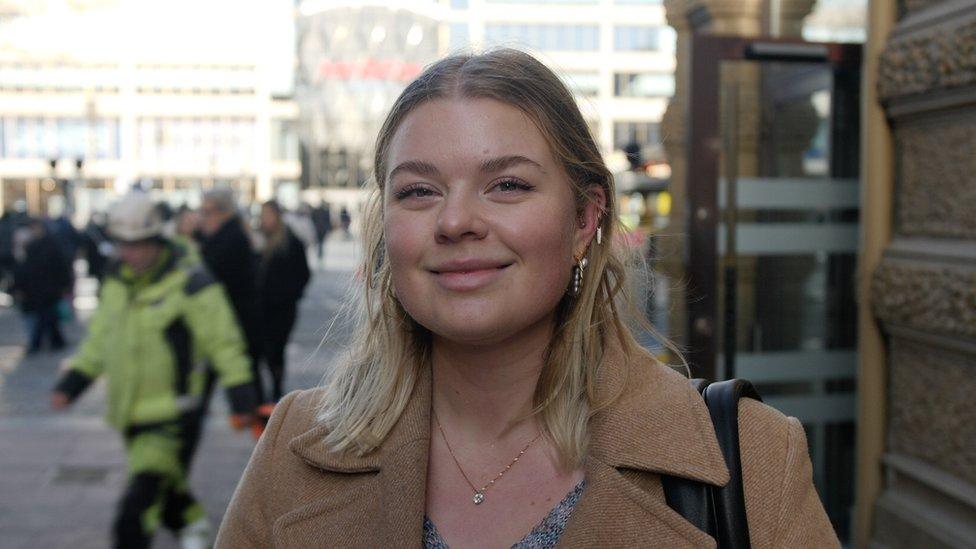
Erica Abrahamsson says the congestion charge is a good way for the city to raise money
Erica Abrahamsson, 21, says some people avoid driving because of the charge.
"But actually I think that's pretty good," she says, "because we have really good trams and buses".
"Usually I only take the bus. Gothenburg is pretty big, but the buses go everywhere.
"I feel like they need to get the money somewhere so I think that's a pretty good way to get it. I think it's better to charge here where we have a better alternative."
Madelen Karlson, 47, agrees.
I think it's OK. It's a good thing that we can help," she says.
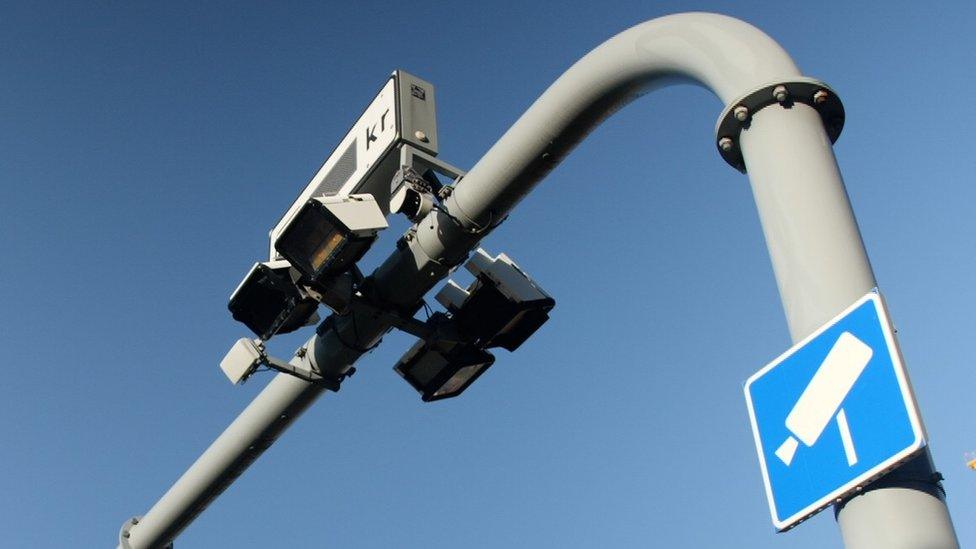
The cameras surrounding Gothenburg aim to raise more than £1 billion in taxes for infrastructure projects
Gothenburg's "congestion tax" is part of the West Sweden Agreement, a pact agreed in 2009 between the national government and regional authorities.
It provided SEK 34bn (£2.66bn) for infrastructure projects, including a new bridge over the Göta älv river and a rail tunnel under the city, known as the West Link. The congestion charge must deliver some SEK 14bn (£1.1bn) of the funds.
As well as raising money, city authorities say since it began in 2013, traffic flow has decreased by between 10% and 15%. Public transport use increased 8% in the first year and has been rising ever since.
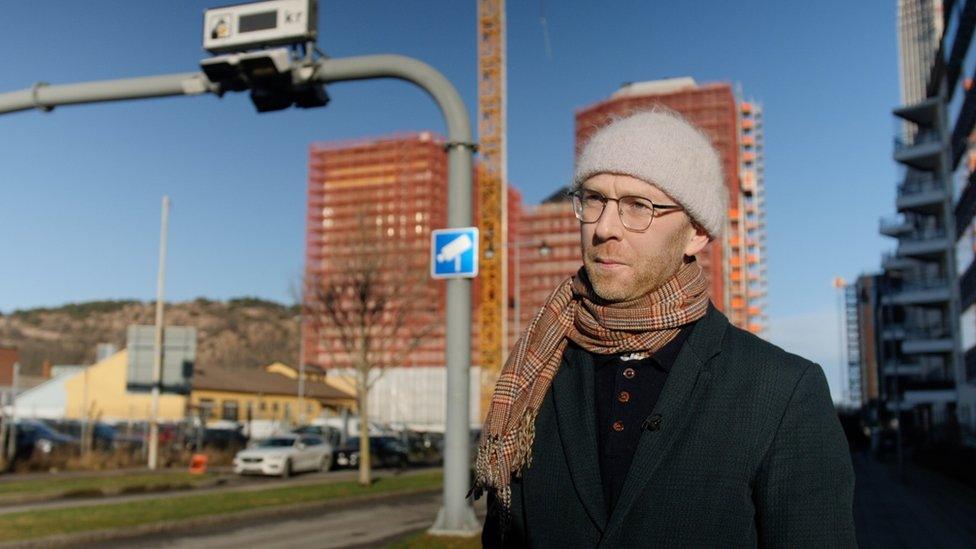
Viktor Hultgren says Cambridge should focus efforts on cutting congestion rather than raising funds
Viktor Hultgren, 38, oversees the congestion charge for the city authorities.
He says a 10% reduction in traffic "maybe… doesn't sound much, but it has a clear impact on the congestion".
He admits the city would not have the charge if it didn't bring money to the city.
"I think that was the main objective in constructing these charges," he says.
But his advice to Cambridge is to focus "less on the money and more on the congestion".
"I think you should try to see where do you have congestion problems and make a congestion charge system that tackles these problems more than [raising] revenue," he says.
"I think the public acceptance would be higher if you could see more clearly what impact the charge has on congestion.
"I think some people see the congestion charge as a way to make money, they don't see the benefits of this system. It has clear benefits and it is hard to see for some people."
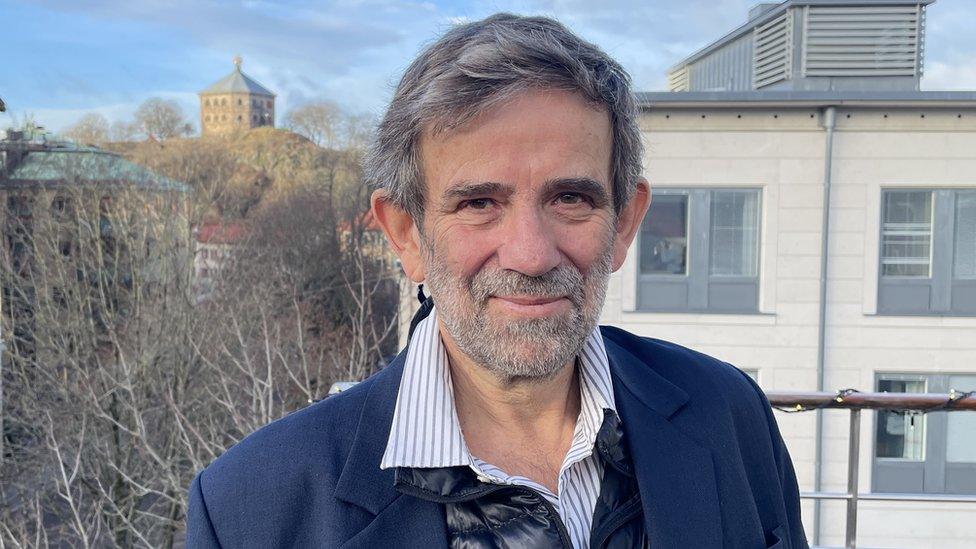
Thomas Sterner, from the University of Gothenburg, says it is "surprising and pioneering" for Cambridge to be considering a congestion charge
For Thomas Sterner, an environmental economist at the University of Gothenburg, it is "surprising and pioneering" for a "relatively small city like Cambridge" to be considering a congestion charge "before some of the bigger ones like Manchester or Liverpool" have established their own.
"I think it needs to be carefully thought through and combined with policies that really make it easier to go bike and flexible public transport," he says.
"Economists have usually thought most about efficiency, that is also important, but fairness is typically the most important when it comes to public acceptance.
Asked what his postcard to Cambridge, where he spent a sabbatical in the 1980s, might include he ponders for a moment and says: "I think I'd write a letter because this is fairly complicated."

Find BBC News: East of England on Facebook, external, Instagram, external and Twitter, external. If you have a story suggestion email eastofenglandnews@bbc.co.uk, external
- Published24 December 2022
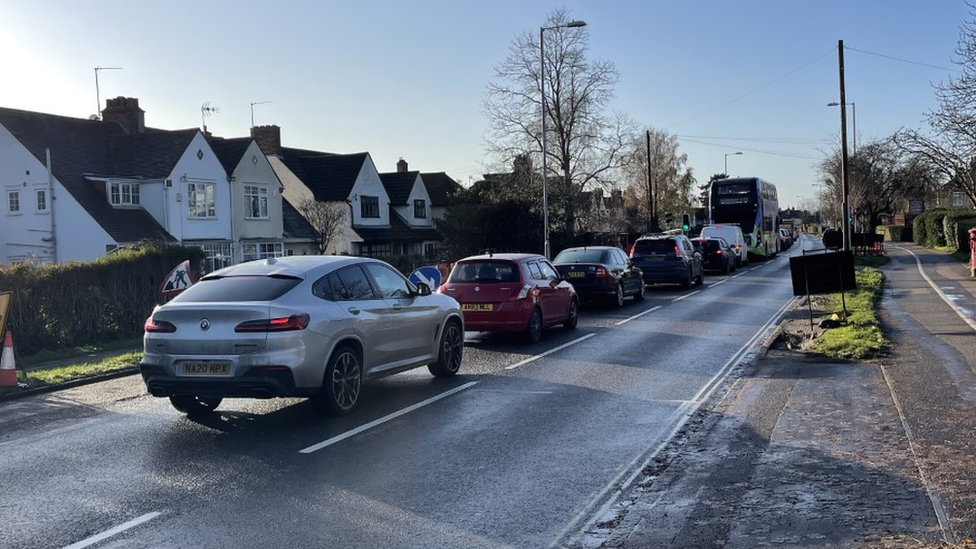
- Published21 December 2022
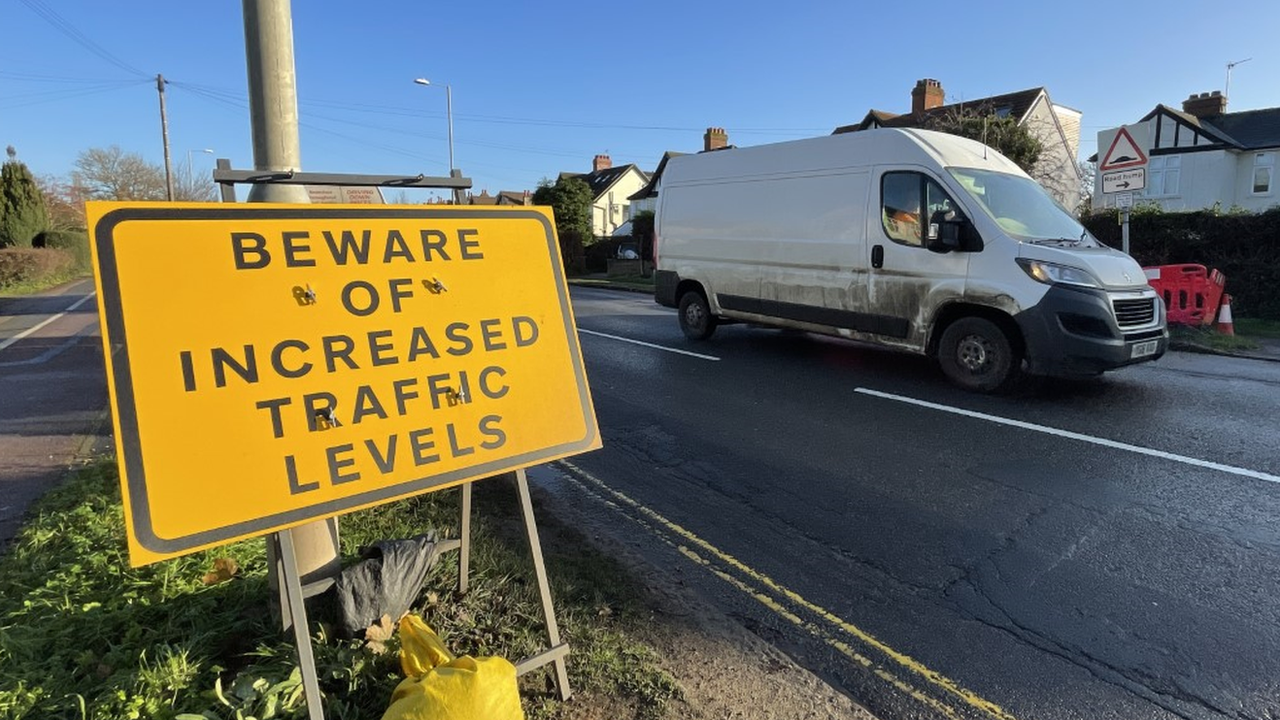
- Published27 August 2022
